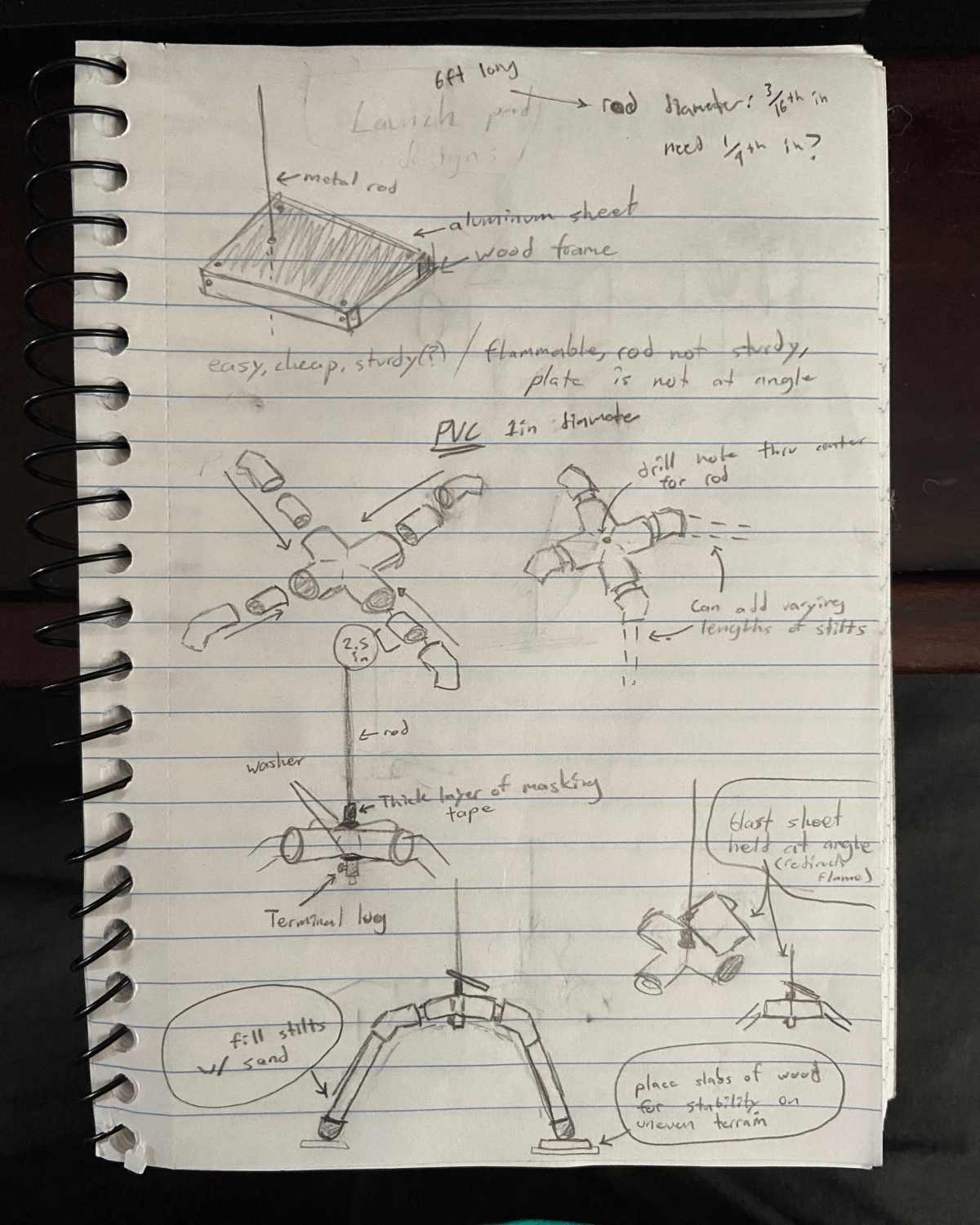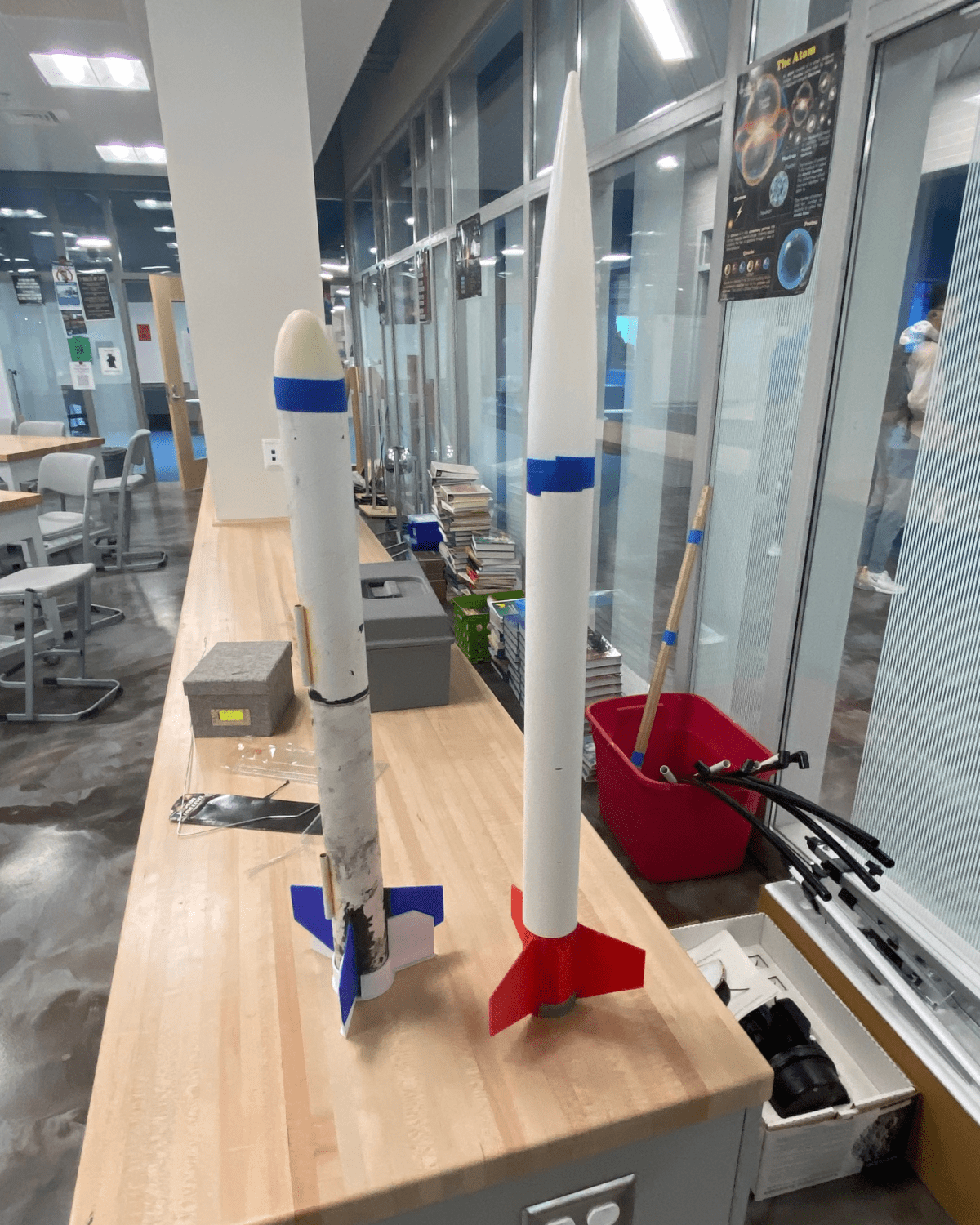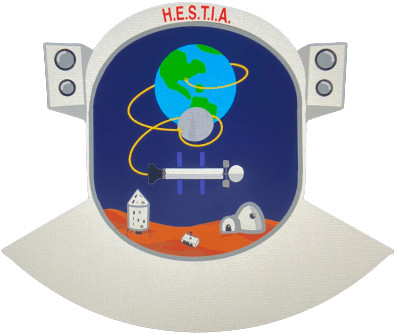

ARC Scholarship Helps Aerospace Engineering Major Get Ready to Rock It

It took Jacob Zahabi until the middle of his junior year in high school to discover rocketry.
But when he did, it was love at first sight. Since then, it’s been all rockets, all the time.
Jacob (’27) pursued his passion for rocket science in the American Rocketry Challenge (ARC) during his junior and senior years, and that journey of discovery landed him at Embry‑Riddle Aeronautical University, where he’s now part of the school’s renowned Aerospace Engineering program.
“My experience was very special,” Jacob said of his participation in ARC. “There were a lot of challenges and a lot of failures. But I learned so much and, most notably, it just made me more determined to do well.”
What is the American Rocketry Challenge?
Jacob did well enough to earn a scholarship from ARC, which gives nearly 5,000 high school students in the U.S. the chance to learn the basics of rocket flight by designing, building and launching model rockets.
The process, which leads to a nationwide competition, helps participants solidify their STEM skills, provides hands-on engineering experience and ultimately helps some of the students with their college tuition.
Jacob’s fascination with rockets started one day in his German class at Courtland High School in Spotsylvania, Virginia, when he saw a buddy playing a video game called Spaceflight Simulator.
“I was just your average high school student, not really knowing what I wanted to do,” Jacob said. “I looked at that game and was instantly hooked. I learned all this crazy stuff about space flight that I didn't know, literally, the day before. And I was like: ‘Is there a job for this? How do I get as close to that job as possible?’”
First Steps Toward the Final Frontier
That question led him to the Rocket Club at school, the ARC contest and some new challenges. The pandemic had pretty much shut down the club the year before, so Jacob, his friend Nick Batram and several other aspiring rocketeers were confronted with a ton of work before they could even think about launching anything.
“The rockets were broken apart, there was nothing working and there were no experienced students left,” said Jacob. “We didn't know anything about what we were doing. So, we did our best to scrape it together.”
Jacob, Nick and the rest of the Courtland Rocket Club team were able to turn what looked like insurmountable obstacles into opportunities for growth and learning. After all, engineering is about identifying thorny problems and creating innovative solutions, so that’s what they did.
They fashioned a launch rod system to keep the rocket from setting the ground on fire during launch. Jacob got his hands on a 3D printer and taught himself how to use Fusion 360 so he could make fin cans for the rocket motors.
Jacob and company also got guidance and encouragement from William Graf, a physics teacher at Courtland High who was the club’s administrator and supported the efforts to resurrect the rocket program.
“He and I became best friends,” Jacob said.
That support was vital as the team faced dozens of other setbacks and issues once they started launching their models in an attempt join the top 100 teams at the ARC national competition, with much of the process captured on the club’s Instagram page.
“We were too successful actually, because the fins were too aerodynamic,” Jacob said. “You must get the rocket to reach a certain height range, and we had an altimeter in it, and we were regularly getting 400 feet over. And almost every time we had a successful launch, it landed in a tree, and we had no way to get it down. We also had rockets burn up or explode, so we never actually made it to the competition.”


A Space Camp Experience
But that didn’t detract from everything he had learned, and, in fact, it only served to fuel his desire to learn more. During the summer before his senior year, Jacob took part in a space camp type experience through the Virginia Aerospace and Space Technology Scholars program (VASTS).

The mission logo designed by Jacob Zahabi for his team during the Virginia Aerospace and Space Technology Scholars program. (Photo: Jason Zahabi)
“You're writing technical reports about space missions, and you are building your own space mission,” said Jacob, who also ended up designing the logo for his team. “In the final project, you had to make a base on Mars. You had to find the location, identify resources, figure out how you're going to get those resources and how big the base would be, everything. I learned so much.”
One of Jacob’s top takeaways from both of his stellar high school experiences was that he loved the challenges and the process that went into meeting them – even if it meant enduring endless work, constant challenges and ongoing “failures.”
Why Choose Aerospace Engineering at Embry-Riddle?
If anything, he was more psyched than ever about what he could do in Embry-Riddle’s College of Engineering.
"I needed to get into a good college," he said.
Although he wasn’t sure he would get accepted or that he could afford to attend Embry-Riddle if he was, he applied anyway to be part of the Fall 2023 freshman class at the world’s leading aviation and aerospace educator.
“Three days after I applied, they accepted me and gave me a Presidential Scholarship,” Jacob said. “And I'm like, ‘Okay, I guess I'm going to Florida.’”
And so here he is, adjusting to life on the Daytona Beach Campus and looking forward to launching a future that is already looking up.
“I know what my passion is, but I am not sure what kind of job I am going to do just yet,” Jacob said. “Basically, I want to work on something that's science fiction and make it not science fiction.”

